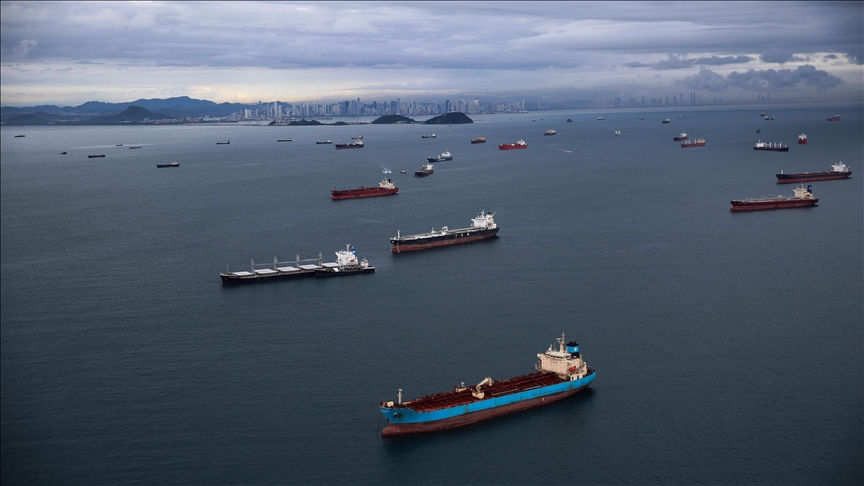Vessel traffic in Cape of Good Hope sees significant spike in last 2 months
Shippers operating in Red Sea reroute to Cape of Good Hope amid rising tensions from Houthi attacks, resulting in increased transit in area
 FILE PHOTO
FILE PHOTO
LONDON
Commercial vessels have been rerouting to the Cape of Good Hope for nearly two months because of tension in the Red Sea, leading to a near doubling of vessel transits in the region and a 75% increase in trade volume.
Yemeni Houthis launched attacks on commercial vessels doing trade with Israel in the Bab-el-Mandeb Strait in the Red Sea. Following the attacks, shipping companies suspended operations and instead rerouted vessels around the Cape of Good Hope, Africa’s southernmost point.
The Suez Canal connects the Mediterranean and the Red Sea and is the shortest route between Europe and Asia. But the increase in travel times for rerouting around the Cape of Good Hope following the attacks resulted in journeys taking up to two weeks, and even 20 days.

Vessel transits around the Cape of Good Hope started to increase in the second half of December, according to the PortWatch database by the International Monetary Fund and Oxford University, compiled by Anadolu.
While the number of cargo and tanker vessels passing around the Cape of Good Hope capped at 50 per day on Nov. 30, the figure hiked to 57 as of Dec. 16.
As of Jan. 28, the number of vessels passing daily around the Cape of Good Hope soared to 85, after companies were advised not to navigate the Red Sea after rising tensions in the area with the US and the UK leading attacks against the Houthis.
Transits around the Cape of Good Hope were calculated as 71 on average in the week ending Jan. 28. The figure was 40 for the same week in 2023.
The trade volume at the Cape of Good Hope also saw an uptick of 8.7 million tons daily on Jan. 2, up 80% from 4.8 million tons Nov. 30.
Daily trade volume in the region was 7.2 million tons on Jan. 28, up 75% on a seven-day average compared to the same period last year.
- Trade volume in Suez Canal, Bab-el-Mandeb Strait rapidly declines
Trade volumes for the Suez Canal and the Bab-el-Mandeb posted significant declines, with the latter seeing weekly average vessel transits decreasing 55% compared to the same week last year, marking it the lowest since March 30, 2021.
Trade volume in the region fell 60.9% in the week to Jan. 28, compared to the same period last year.
Transits and trade volume in the Bab-al-Mandeb Strait declined sharply as of the second half of December, with daily vessel transits in the region down 67% as of Jan. 28, compared to Dec. 15, while trade volume decreased 66% during the same period.
Daily vessel transits in the Suez Canal plummeted 40% and the trade volume 32% as of Jan. 28, compared to Dec. 15, 2022.
- Situation in Red Sea
The Iranian-backed political organization, the Houthis, started seizing commercial vessels linked to Israeli companies off the coast of Yemen on Oct. 31, attacking them with drones and missiles in response to Israel’s attacks in Gaza.
In the meantime, US forces made announcements that they shot down missiles and kamikaze drones fired from Yemen.
Following the Houthi attacks, many shipping companies decided to suspend operations in the Red Sea.
International container transportation prices saw huge upticks, with EU countries being among the most affected by the Red Sea blockade, with some automotive factories in Europe having to temporarily suspend production due to supply delays caused by the attacks.
Since shipping companies decided to reroute around the Cape of Good Hope to avoid the conflict, the prolonged travel times disrupted the supply chains of many sectors.
Qatar's state-owned oil firm QatarEnergy announced that it will delay the delivery of at least six liquefied natural gas (LNG) cargoes to Europe, reporting that there may be more disruptions as the delivery is rescheduled through alternative routes.
*Writing by Emir Yildirim from Istanbul


